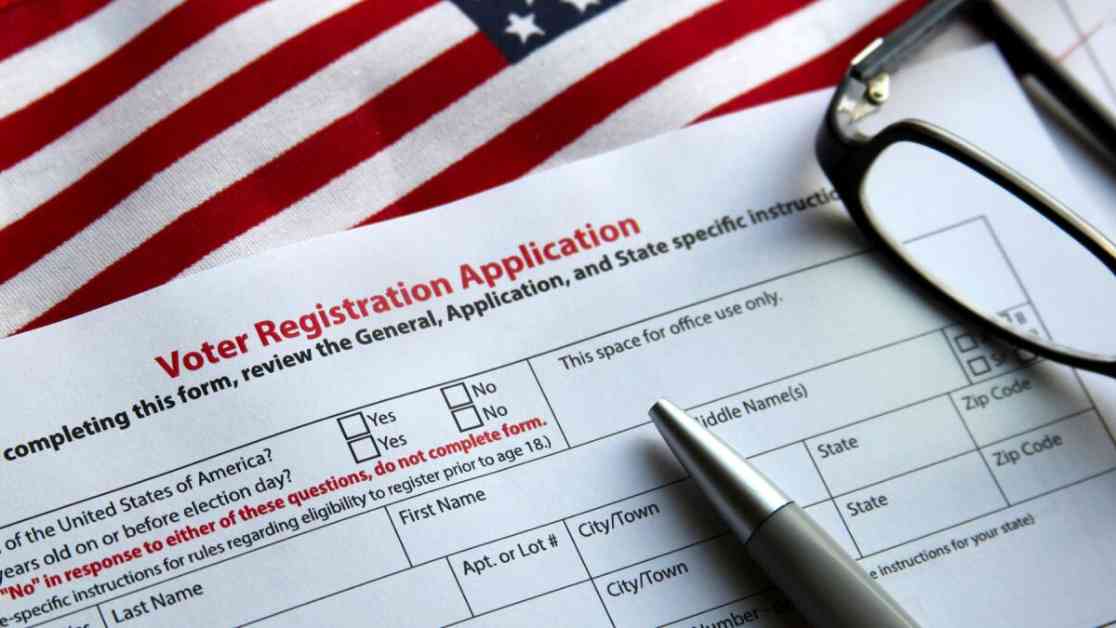Republican Push for Noncitizen Voting Restrictions
As the upcoming presidential election draws near, Republicans are once again reviving false claims of voter fraud, this time targeting noncitizen voting. Despite experts on both sides of the aisle dismissing this practice as rare and inconsequential, GOP officials in states like Texas, Louisiana, and Oklahoma are pushing for measures to curb potential noncitizen voting. House Speaker Mike Johnson recently attempted to attach the controversial SAVE Act to a government spending bill to require proof of U.S. citizenship for voter registration. However, lack of support led to the bill being pulled, but the issue remains at the forefront of Republican agendas.
Supreme Court Ruling on Proof of Citizenship
In a recent ruling, the Supreme Court’s conservative majority upheld Arizona’s requirement for proof of citizenship when registering new voters. While this emergency order may not impact the upcoming election, it sets a precedent for states to mandate proof of citizenship during voter registration. Former President Trump highlighted this issue during a recent presidential debate, suggesting that the Biden administration is using migrants to manipulate election outcomes. California House Republicans are also drawing attention to noncitizen voting at the federal level, despite limited power in shaping state policies.
Debunking the Myths Surrounding Noncitizen Voting
Studies have shown that instances of noncitizen voting are extremely rare. The Brennan Center for Justice’s analysis of the 2016 election revealed only about 30 cases of suspected noncitizen voting, while the Heritage Foundation’s database identified just 68 cases since the 1980s. Despite these findings, Republicans in states like Texas have pointed to voter registration reviews that led to the removal of potential noncitizens from voter rolls. Governor Greg Abbott claimed that over 6,500 potential noncitizens were removed from Texas’ voter rolls, but data indicate that the actual occurrence of noncitizen voting is minimal.
It is crucial to distinguish between isolated incidents of noncitizen voting and the broader implications of imposing restrictive measures that could disenfranchise eligible voters. By fueling fears of noncitizen voting, Republicans may be undermining public confidence in the electoral process. The SAVE Act, which aims to require proof of citizenship for voter registration, has been criticized for its potential to complicate voter registration processes and disenfranchise certain groups, such as elderly citizens who may face challenges in obtaining necessary documentation.
Despite the push for noncitizen voting restrictions, concerns about voter fraud may be fueled by misinformation and fear rather than concrete evidence. Immigrants are often scapegoated as a threat to the electoral system, contributing to a climate of distrust and suspicion. The notion that immigrants are intentionally trying to influence politics through noncitizen voting further perpetuates misconceptions and stokes anti-immigrant sentiments. It is essential to address these underlying fears and biases to ensure a fair and inclusive electoral process for all eligible voters.
In conclusion, the debate over noncitizen voting highlights the broader issues of voter fraud, election integrity, and immigrant rights. While Republicans continue to push for restrictive measures, experts have emphasized the rarity of noncitizen voting incidents and the potential negative impact of imposing burdensome requirements on voter registration. As the political landscape evolves, it is crucial to uphold the principles of democracy and ensure that all eligible citizens have the opportunity to participate in the electoral process without unnecessary barriers or discrimination.



























